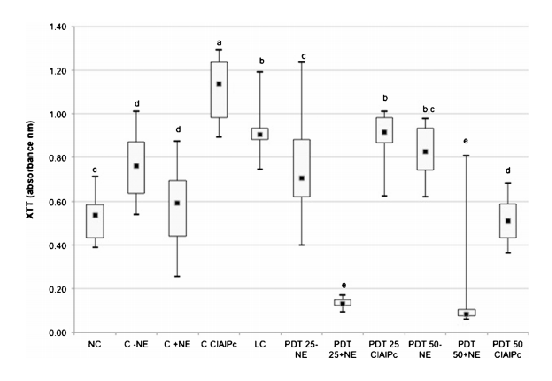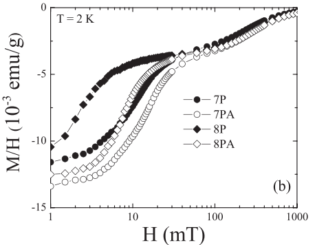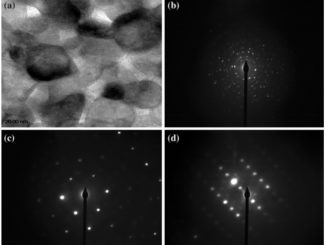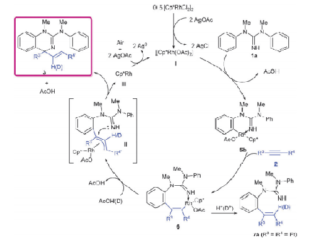
Antimicrobial photodynamic therapy against pathogenic bacterial suspensions and biofilms using chloro-aluminum phthalocyanine encapsulated in nanoemulsions
Abstract: Antimicrobial photodynamic therapy represents an alternative method of killing resistant pathogens. Efforts have been made to develop delivery systems for hydrophobic drugs to improve the photokilling. This study evaluated the photodynamic effect of chloro-aluminum phthalocyanine (ClAlPc) encapsulated in nanoemulsions (NE) on methicillin-susceptible and methicillin-resistant Staphylococcus aureus suspensions and biofilms. Suspensions and biofilms were treated with different delivery systems containing ClAlPc. After the pre-incubation period, the drug was washed-out and irradiation was performed with LED source (660 +/- 3 nm). Negative control samples were not exposed to ClAlPc or light. For the suspensions, colonies were counted (colony-forming units per milliliter (CFU/mL)). The metabolic activity of S. aureus suspensions and biofilms were evaluated by the XTT assay. The efficiency was dependent on the delivery system, superficial load and light dose. Cationic NE-ClAlPc and free-ClAlPc caused photokilling of the both strains of S. aureus. For biofilms, cationic NE-ClAlPc reduced cell metabolism by 80 and 73 % of susceptible and resistant strains, respectively. Although anionic NE-ClAlPc caused a significant CFU/ml reduction for MSSA and MRSA, it was not capable of reducing MRSA biofilm metabolism. This therapy may represent an alternative treatment for eradicating resistant strains.
Author(s): Ribeiro, APD; Andrade, MC; Bagnato, VS; Vergani, CE; Primo, FL; Tedesco, AC; Pavarina, AC
LASERS IN MEDICAL SCIENCE
Volume: 30 Pages: 549-559 Published: FEB 2015
DOI: 10.1007/s10103-013-1354-x




